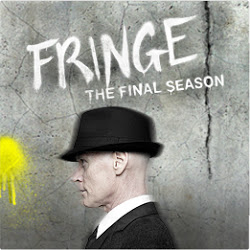Yesterday, I demonstrated that David Barton incorrectly claimed that Ronald Reagan opposed his press secretary James Brady on gun control. In fact, Reagan advocated for the Brady Bill.
During his appearance with Glenn Beck yesterday, Barton also made another claim that I strongly doubt. About the National Rifle Association, The Blaze cites Barton as making an interesting claim about the founding of the NRA:
In addition, Barton addressed the founding of the NRA. While some like to demonize pro-Second Amendment group and even call it prejudiced, it turns out the powerful group was in fact started by two Union generals in 1871 as a means to driving out the Ku Klux Klan and ensuring that blacks, who although then-free were not allowed means with which to defend themselves — could in fact legally own a gun.
On the follow video, Barton draws out the story that the NRA rose up because the Southern leaders were not policing the KKK. Begin listening at the beginning of the clip.
If Barton’s claim was true, this would be admirable and perhaps improve the image of the NRA. One would think the NRA would include this fact on their website, as Beck wondered. However, they do not. The NRA history page reads:
Dismayed by the lack of marksmanship shown by their troops, Union veterans Col. William C. Church and Gen. George Wingate formed the National Rifle Association in 1871. The primary goal of the association would be to “promote and encourage rifle shooting on a scientific basis,” according to a magazine editorial written by Church.
After being granted a charter by the state of New York on November 17, 1871, the NRA was founded. Civil War Gen. Ambrose Burnside, who was also the former governor of Rhode Island and a U.S. Senator, became the fledgling NRA’s first president.
An important facet of the NRA’s creation was the development of a practice ground. In 1872, with financial help from New York state, a site on Long Island, the Creed Farm, was purchased for the purpose of building a rifle range. Named Creedmoor, the range opened a year later, and it was there that the first annual matches were held.
Go read the rest, there is nothing there about the KKK or getting guns in the hands of newly freed slaves. The reason the NRA doesn’t include is probably because there is no evidence for it. At least, I can’t find any evidence in the early charter of the NRA, or the biographies of the founders. Here is what the charter document said about the aim of the NRA (see also this historical summary):
REASONS FOR ITS ORGANIZATION
Although the introduction of the rifle as a military weapon was owing to the lessons of our Revolution, and although our success in the earlier contests of our history depended upon the skill in its use displayed by our ancestors, no recognition has been given by our citizens of the fact that the change which has taken place in the habits of the American people is rapidly depriving them of that personal skill in arms and marksmanship which has hitherto formed one of the greatest elements of our national strength. This is the more to be regretted, as the introduction of long range breech loaders has made this skill of even more importance at the present time; than under the ancient system for not only the conflict between Prussia and Austria, but the more recent French and Prussian contest have demonstrated that the very accuracy and rapidity of fire, which renders these arms so formidable in the hands of trained marksmen, simply results in a waste of ammunition with those unfamiliar with their use, which leaves an army helpless at the decisive moment of battle. Other nations, recognizing these facts, have long since instituted a thorough system of instruction in rifle practice, France, Germany, Switzerland, and above all, England, and Canada unite in giving to rifle practice a leading position in their systems of military training. In the latter countries, the success that has been attained, not only in producing good marksmen, but in making the subject popular among the people at large has been very great. The Wimbledon contests in England are too well known to need description, and 150,000 trained riflemen are a standing proof of their value. So, on our northern border Canada boasts her 40,000 skilled shots, and has her annual Local Provincial and Dominion matches by which their skill is maintained. In this country, on the other hand, the matter has been entirely neglected, although our entire system of defense is based upon the levying of volunteers in cases of emergency, who, to be valuable or even available, must understand the use of arms and supply by their skill as individuals the confidence which discipline gives to regular troops. While England has a system of rifle practice which is required to be annually and thoroughly performed by every soldier in her army whether stationed in India, Australia, or Europe, our War Department has not even enforced the system of Major Willard, adopted in 1862, and sends raw recruits against the Indian hunters of the plains. In the National Guard of New York, and other States, a similar apathy has prevailed so that it has been the rule, not the exception, for a man to serve out his full term of enlistment in their ranks without firing a shot.
FORMATION OF THE NATIONAL RIFLE ASSOCIATION
This anomalous condition of affairs, having excited considerable discussion among military men through the press, finally on November 24 1871 led to the formation in the City of New York of The National Rifle Association, which was designed and bids fair to be the parent of many similar associations throughout the country.
Shorter NRA history: Northern Americans were bad shots and the founders of the NRA wanted to improve the situation. The NRA established a rifle range and shooting contests in order to achieve their goals. The founding document made this clear:
AIMS OF THE ASSOCIATION
The main aim of the Association is the encouragement of rifle practice throughout this State and the United States.
They also desire to promote the establishment of ranges throughout the State, and the issue of ammunition, target, and other appurtenances required for their use with offering of prizes both by the State, and by individuals, to the best marksmen. They also seek to build up local of a similar character to their own, which while under official supervision to ensure then proper, yet will be so popular in their character as to secure success.
I have looked through early NRA annual reports, biographies of the founders, and other documents looking for any support for Barton’s claim. Any reference to the claim on the web is unsourced. If Barton has a source for his claim, he should bring it up.
One nagging uncertainty in this relates to the role of rifle clubs in South Carolina during the campaign for governor in 1876. Wade Hampton and Daniel Chamberlin squared off and eventually both declared victory. Hampton was a Confederate general who was aided by white “rifle clubs” throughout the state. On the other hand, the state armed black militias and some were in rifle clubs of their own. What is not clear yet to me is the affiliation of those rifle clubs. They all may have been local with none affiliated with the NRA. In fact, I can’t find any of the names of the SC clubs in the NRA annual reports, leading me to think that the NRA had nothing to do with either arming blacks or disarming them.
In any case, Barton’s claim is that the NRA arose to drive out the KKK. Currently, I see nothing to corroborate that claim. If anything surfaces, of course I will update this post.

